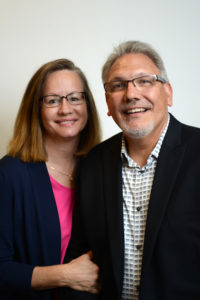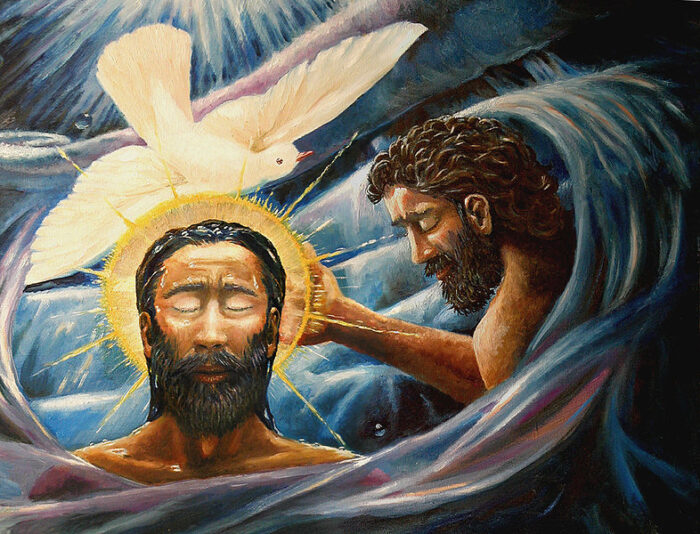Paul reminds the church of who they were apart from Christ. He does this to break down their division and pride, but even more importantly, to help them regain their new and true identity in Christ and to refocus on their kingdom of heaven citizenship.
We all get called out in this list in one way or another. The great common denominator all Christians share is that before coming to Christ, we were outside of his kingdom – outside of a participatory relationship with our triune God—because of our sin. None of us were living according to our true, original, God-intended identity.
This Corinthian passage often gets singled out to show how the church is known for its views on homosexuality. However, let’s not miss the bigger context here; it is not just sexual activity that is called out. Paul shows us how sexual immorality in general as well as greed and swindling are symptomatic of a false identity (and this certainly isn’t a complete list of such behavior). To be part of God’s kingdom, we need to live according to the identity we have in Christ. We are to no longer be defined and controlled by our past, present, or future sin, whether that is seen in sexual struggle, idolatry, or greed. All those things are poor and false substitutes for what is offered to us in Christ.
How do we treat people who are struggling with these various temptations? How do we share God’s love without implying an endorsement of sinful behavior? How do we help people see the real issue is about our true identity—living in Christ, knowing him, and knowing he knows and loves us.? Can we be pastoral in our care?
First, we must admit that even though we are in Christ, we are also in the flesh; we all deal with temptation in various ways. In his letter to believers in Rome, Paul says that as believers, we aren’t ruled by these temptations, yet the temptations still nip at our heels. When considering the sins Paul listed, we need to delineate between temptation (the lure or attraction involved in sin) and response to temptation—behavior. Temptation, the attraction which leads to sin, is not the problem. It’s the wrong behavioral response to temptation that is the problem. This is true for all of us, whatever sinful temptation we experience. Jesus said that we must deal with the plank in our eye before we call out the speck in our neighbor’s eye. In Peter’s letter, he says that we should engage people in humility and with respect. That’s good and sound advice to heed.
Second, Jesus died for all. Therefore, we don’t look at others as outside the atonement of Lord Jesus. All are included in the love, grace, and life of our triune God. We who have received the transforming love of Jesus are outfitted to align with the two great commandments—loving God with our hearts, minds and souls and loving our neighbor as ourselves—and the new commandment Jesus gave us – to love others as he loves us. This means treating others, no matter their sin struggle or their false identity, with grace, respect, care, compassion, and hope.
What posture do we take as church communities in receiving and discipling people who are showing interest in Christianity, yet are still entangled in sinful behavior and false identities?
As stated earlier, we must first see people as children of God under the atonement of Jesus and by the power of the Holy Spirit, and we should always display an environment of welcoming and care. We can seek to understand the struggles people deal with, as best as we are able, and not rely on misinformation or prejudice. Our central message and our actions consistently point to who Jesus is and who we are in relationship to him. We rely on the Spirit to guide the new person toward convictions about sin and righteousness in their individual life, according to a timing that only he regulates. If we, as a group of mature believers, can do this, we provide a safe space where people with all types of struggles can find their identity and belonging in Christ Jesus. We share with them a life journey of forsaking sin and growing in our relationship with Jesus in the true identity he gives them. This is a picture of the church being the church, and this is how we live out the slogan “All Are Included.”
We have GCI churches all around the world, in many different cultures, facing different societal pressures regarding sin issues. Let’s all be true to the gospel of Jesus by focusing on Jesus and our identity in him. This enables us to give answers and counsel to people’s struggles and sin issues.
Even as we have doctrinal unity outlined in our GCI Statement of Belief, the understanding and application of how we show care has some variance around matters of indifference and depth of understanding in various cultures around the world. This is no surprise to Jesus as he remains the faithful Head of the church. Some congregations, for various reasons, may be more effective in ministering to people experiencing various identity issues. In every case, however, the consistency we hope for in GCI is that we faithfully point all people to Jesus, over and above any social agenda or false identity. As we participate in a wide variety of relationships, we trust the Holy Spirit to actively accomplish the transformational work that only he can do.
The takeaway is this. Christ-centeredness and Holy Spirit dependence is how we operate as healthy churches. Because of Christ’s saving grace, we have a new identity. The sense of our belonging, significance, purpose, security, and destiny is realized in the true self found in Jesus. This union with Christ is the highest prize for which we lay all other things aside. We are justified in Christ by being forgiven and made righteous in his sight. For the rest of our lives, we live into that new identity as we are sanctified more and more, growing in the grace and knowledge of our Savior. We are a born-again, Spirit-filled work in progress, pointing others to the same Jesus and the same journey.
In Him,
Greg Williams





Thank you for the reminder of what it was like before God brought me to his Son, Jesus Christ. My thinking was corrupted by selfishness, fearfulness, loneliness and shame. I was spiritually blind unable to receive God’s love. Today I live to please Jesus and share with the lonely that there is plenty of room in Jesus, the Father’s House. A few have considered, “Since God loves Ken, maybe he will love me!”
„We may not be able to discern what God wants each person to be or do, especially those who are handicapped or whose lives are cut off prematurely. But the imaging idea informs all of biblical ethics. It also describes our Christian lives: we are to image Jesus, who is the ultimate imager of God (Rom. 8:29; 1 Cor. 15:49; 2 Cor. 3:18)“. Source: INSIGHTS ON MASTERING BIBLE DOCTRINE (pp. 137-138)-MICHAEL S. HEISER
Thanks Greg for pointing us to our Oneness In Christ even as He and His Father are One. Through this One we are all made Righteous, Holy, and Without Blame. He is Our New Creation, but we see dimly and know in part, and are not yet fully aware of Him, but that which He does Reveal by the faith of Him in us we can now live in Him!
We lived a number of years living in “Parable Country” surrounded by vineyards, olive trees, sheep…the overwhelming takeaway was that the more we understand and rest in HIS identity the more clearly we see our own and others. It reminded us of the Eph.5.22 statement. Our children used to say “ no good trying to get a different answer” from one of us….we agreed on the issues. As we are HIS bride, the more clearly we grasp HIS identity the more our own in Him reflects that substance to others?